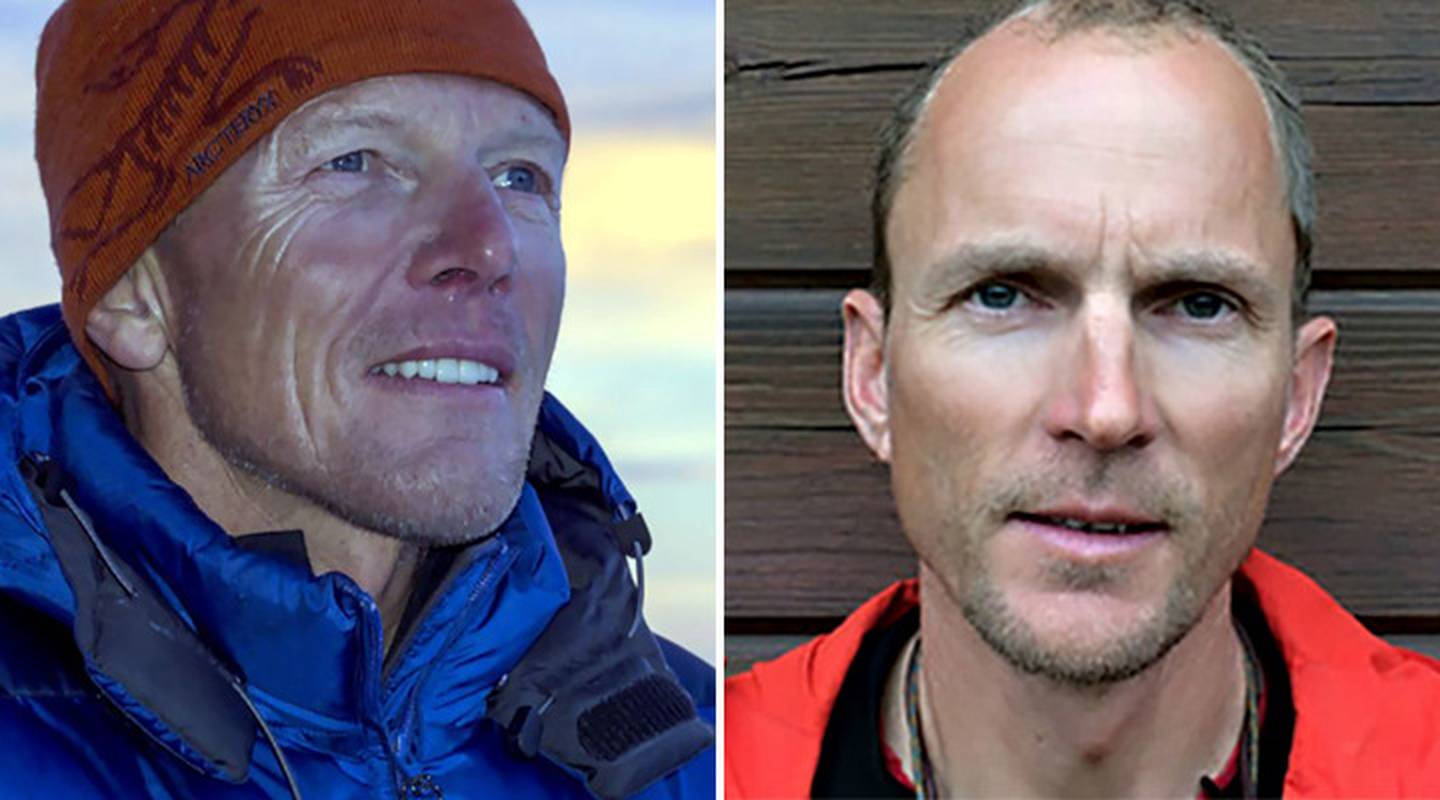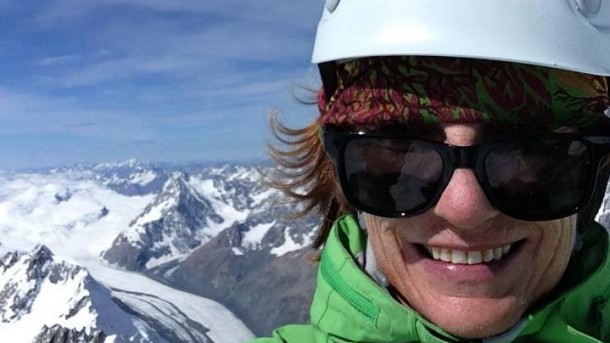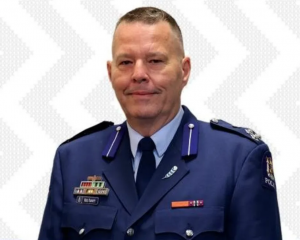
Rescuers carried out CPR on Martin Hess and Wolfgang Maier after the avalanche on Mt Hicks but their attempts were unsuccessful.
The pair are both originally from Germany but were New Zealand residents.
The guides were with Jo Morgan, the wife of Gareth Morgan, who miraculously survived after setting off her personal locator beacon after being trapped in snow for at least 30 minutes.
Central Otago-based Hess joined the New Zealand Mountain Guides Association (NZMGA) in 2006.
A post on adventureconsultants.com says he started climbing in 2001 at age 33 and became a guide in 2003.
It says Hess is an NZMGA Alpine Trekking Guide, Level 2 and "works with us as a trekking guide for our treks here in New Zealand".
Maier belonged to the German Mountain Guides Association and had previously worked for Alpine Recreation, Stuff reports.
Earlier today, Area Commander Inspector Dave Gaskin provided fresh details of the dramatic mountain rescue.
Morgan was on the mountain as part of an effort to climb all 10,000ft peaks in New Zealand - Mt Hicks was the last one for her to achieve this feat.
Insp Gaskin said the deaths would have a "dramatic" effect on a community already reeling from the deaths of three people in a helicopter in Wanaka two weeks ago.

The guides' bodies had been taken to Christchurch where autopsies would be carried out.
The pair were well known in mountain climbing circles and by Doc staff, who were still mourning the loss of Paul Hondelink and Scott Theobald in the Wanaka helicopter crash earlier this month.
Insp Gaskin said the trio reached the summit of Mt Hicks about 2am and were climbing down the southwest ridge of the mountain when they were "engulfed" by the avalanche about 6am.
After Ms Morgan, who was uninjured, raised the alarm, the calm conditions meant getting to the scene was relatively straight forward.
Rescuers from the Aoraki search and rescue team arrived about 7.30am and attempted CPR "for some time" and the two guides, but were too late to save them.
Ms Morgan survived by utilising her training and by using a swimming motion with her arms managed to get one or two arms out of the snow.
The two guides were stuck in the snow below her.
He said Ms Morgan had been climbing all 10,000ft peaks in New Zealand - Mt Hicks was the last one for her to achieve this feat.
"From what I understand she is extremely upset, as you would expect.
"It's a terrible tragedy for her to be involved in."
He said recent weather meant the avalanches were a "constant risk" in the Aoraki/Mount Cook area at the moment.
"We've had a lot of really cold weather with a lot of ice and recent snow.
"And recent snow sitting on ice always makes avalanches even more frequent."
By climbing the mountain in such conditions: "They took a chance and unfortunately it didn't work."
Asked if they should have been on the mountain given the conditions, he said they were well-equipped, experienced and knew how to minimise the risks of something going wrong.
"Climbing mountains is an extreme sport, there is an element of risk," he said.
Earlier story
The lone survivor of a fatal avalanche near Aoraki/Mount Cook, which took the lives of two mountain guides, says it took her nearly an hour to dig herself out after being buried by snow.
Speaking to Newshub, Jo Morgan said "I'm so lucky to be alive".
"It took me nearly an hour to dig myself out and set the locator beacon off."
Rescuers were "tragically too late" to save two mountain guides.
Department of Conservation director general Lou Sanson, who is in the Aoraki/Mount Cook Village with Mrs Morgan, the wife of Gareth Morgan, told RNZ she was "completely buried" in snow for about 30 minutes until she was able to activate her personal locator beacon
She then took another 20 minutes to free herself.
The avalanche came down about 5.30am and Ms Morgan was able to release the locator beacon about 6am.
"Time is absolutely critical. From that 6am response we were able to swing into action and to be on the mountain by 7.30am.
"She described being able to put her arm up and feel air above her somewhere, she was getting cold and then she came to the surface and couldn't see her two companions," Mr Sanson said.
He told the Otago Daily Times he had carried out a ''text book recovery of an avalanche victim".
''Clearly her personal locator beacon was close to her body.
''She was able to get help - get the Rescue Co-ordination Centre involved at six o'clock.
''We were on site not long after 7am but tragically too late for the other two victims.''
They were two professional mountain guides whose bodies have been found but whose names have not yet been released.
It is still unclear who the two guides who died on Mt Hicks this morning were working for.
Lake Tekapo-based Alpine Recreation director Anne Braun-Elwert told the Otago Daily Times the two men had guided for her company as recently as late September.
''They have done some guiding for us, but it was not an Alpine Recreation trip.
''They were not guiding for Alpine Recreation at the time.''
Ms Braun-Elwert said it was not uncommon for guides to work in a freelance arrangement.
''Many guides freelance.
''They guide for various different companies.''
She declined to say more until police released the names officially.
Mr Sanson said he was proud of his Doc staff and the professionalism they showed during the rescue this morning.
''It makes you so sad that they all know the people involved; but so proud of my staff this morning.''
The avalanche, on Mt Hicks, happened at about 5.30am, he said.
Mr Sanson said he was ''absolutely shattered''.
He was in Aoraki/Mount Cook Village preparing to give a eulogy at the funeral of Doc ranger Scott Theobald this afternoon.
Her daughter Jessi, wrote on Facebook this morning: "Just an update that Jo is safe and back at Mt Cook village."
Sanson said in a Facebook post he was "giving her big hugs" and getting coffee and eggs.

"My number one priority is being here for Jo."
A major search operation was launched after the avalanche on Mt Hicks, near Aoraki/Mt Cook, this morning.
Police have confirmed that two men were killed in the avalanche and their bodies have been recovered from the mountain.
Police said it was in the process of informing the next of kin of the two men.
The deaths will be referred to the Coroner.
A St John spokesman told the Otago Daily Times that given the outcome of the incident all inquiries needed to go through police.
"I can confirm, though, that St John did attend with a helicopter from Christchurch with an intensive care paramedic onboard and a crew on the ground."
Two helicopters, eight alpine cliff rescue people and an avalanche dog were out searching.
Rescue coordination centre media spokeswman Grace Loftus didn't know what time the emergency was first raised, but she was notified at 6.45 am.
Mt Hicks, 3198m, is a mountain in the Southern Alps within the Aoraki/Mount Cook National Park.
Gary Dickson, who has more than 30 years of climbing experience, said if the rescue was on Mt Hicks it was a mountain that was tricky and one of the more difficult mountain climbs in New Zealand.
The Alpinism and Ski owner operator said the climbing difficulty in Aoraki/Mt Cook Regional Park was scaled from one to six. The easiest route on Hicks was a 4, while there was some that were a 5.
There were several routes up the mountain, the most popular was the south face which was a series of steep climbs.
"It's steep ice climbing for New Zealand," he said. "There is an awful lot of difficult climbs there."
Avalanche Advisory New Zealand (AANZ) has warned of rapidly changing volatile spring conditions in the Aoraki/Mount Cook National Park area.
A spokesman said a high degree of caution was advised until 10am tomorrow.
Dangerous avalanche conditions, careful snowpack evaluation, cautious route-finding and conservative decision-making was essential from above 1400m, he said.
The latest advisory at www.avalanche.net.nz says there is a considerable risk of avalanches in Arthur's Pass, Craigieburn Range, Mt Hutt and Aoraki/Mt Cook.
Avalanches can happen at this time of year as the warmer temperatures, combined with rain, increased risk.
Trouble on New Zealand's mountains
A week ago three hunters had a lucky escape after an avalanche brought snow crashing onto their tents in Fiordland, at the head of Lake Te Anau.
The incident also follows the death of Caleb Jennings earlier this month.
The 31-year-old was seriously injured while climbing near Mt Harper, in Mid Canterbury, on October 22. He died in Christchurch Hospital three days later.
Jennings had been a member of the New Zealand Alpine Team.
More than 140 people have died in avalanches in New Zealand, according to records that began to be kept in 1860.
One of the worst incidents happened in August 1863 when a massive avalanche buried a camp of goldminers in Otago, killing 41. In modern times avalanches most often claim the lives of climbers.
Another tragedy occurred on June 23, 1966, when a rescuer was killed in an avalanche during an unsuccessful attempt to rescue four climbers trapped on Mt Rolleston.
In 2015, Sydney skier Roger Greville died after being pulled from avalanche debris near the Devil's Staircase, near Queenstown.
- additional reporting by NZME.











